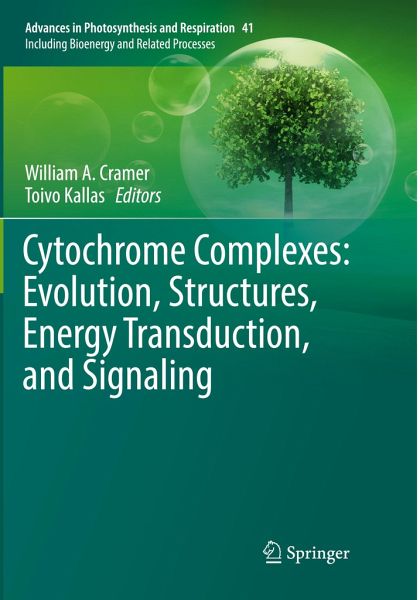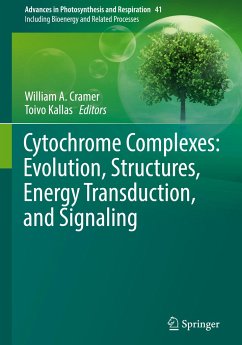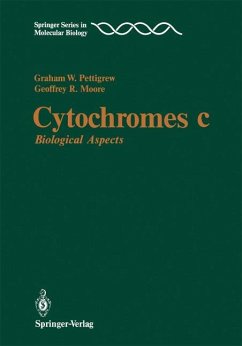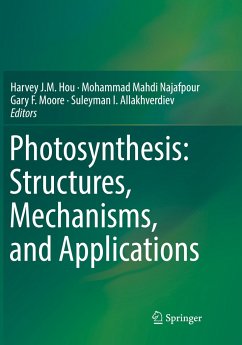
Cytochrome Complexes: Evolution, Structures, Energy Transduction, and Signaling
Versandkostenfrei!
Versandfertig in 6-10 Tagen
228,99 €
inkl. MwSt.

PAYBACK Punkte
114 °P sammeln!
An Introduction that describes the origin of cytochrome notation also connects to the history of the field, focusing on research in England in the pre-World War II era. The start of the modern era of studies on structure-function of cytochromes and energy-transducing membrane proteins was marked by the 1988 Nobel Prize in Chemistry, given to J. Deisenhofer, H. Michel, and R. Huber for determination of the crystal structure of the bacterial photosynthetic reaction center. An ab initio logic of presentation in the book discusses the evolution of cytochromes and hemes, followed by theoretical per...
An Introduction that describes the origin of cytochrome notation also connects to the history of the field, focusing on research in England in the pre-World War II era. The start of the modern era of studies on structure-function of cytochromes and energy-transducing membrane proteins was marked by the 1988 Nobel Prize in Chemistry, given to J. Deisenhofer, H. Michel, and R. Huber for determination of the crystal structure of the bacterial photosynthetic reaction center. An ab initio logic of presentation in the book discusses the evolution of cytochromes and hemes, followed by theoretical perspectives on electron transfer in proteins and specifically in cytochromes. There is an extensive description of the molecular structures of cytochromes and cytochrome complexes from eukaryotic and prokaryotic sources, bacterial, plant and animal. The presentation of atomic structure information has a major role in these discussions, and makes an important contribution to the broad field of membrane protein structure-function.












